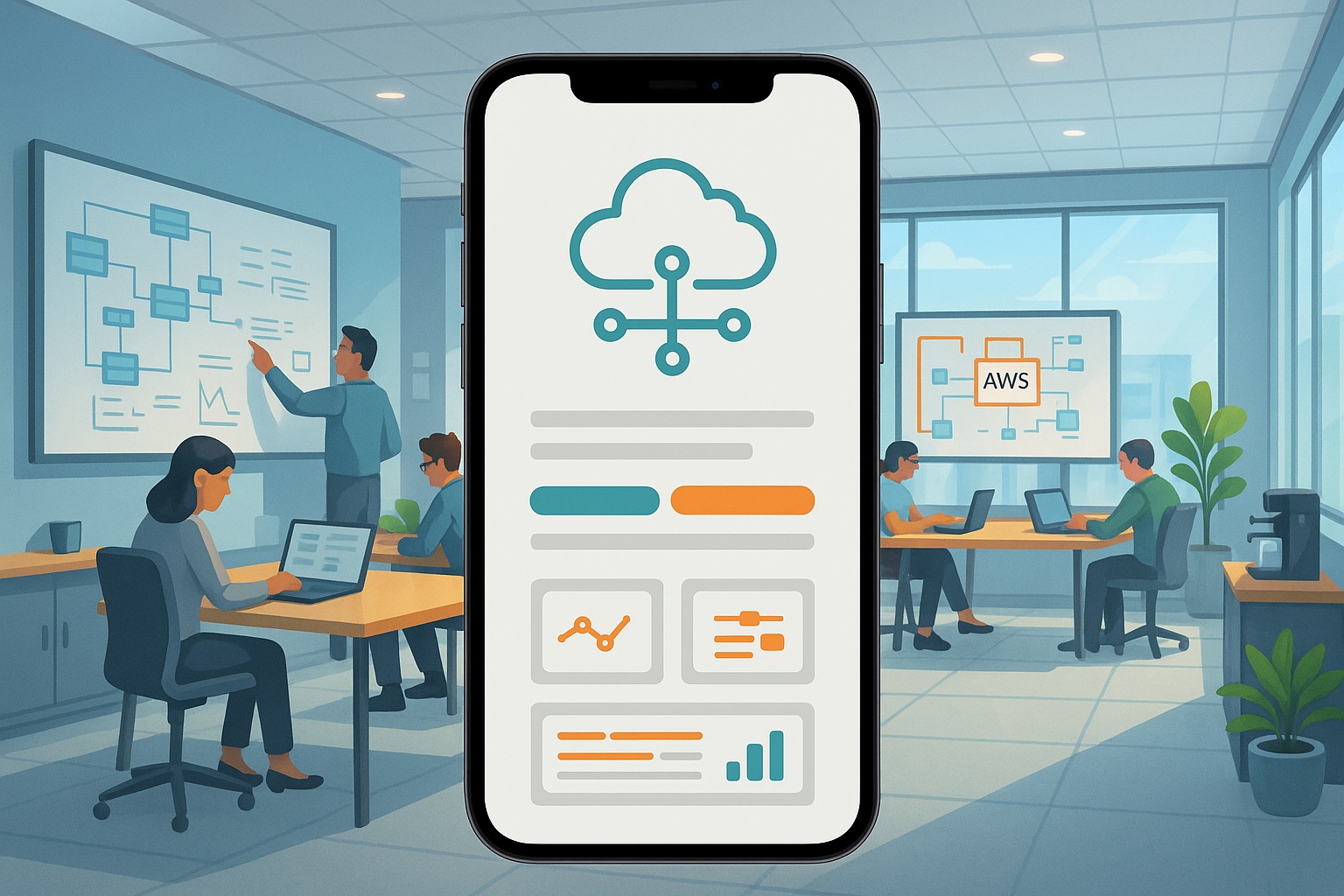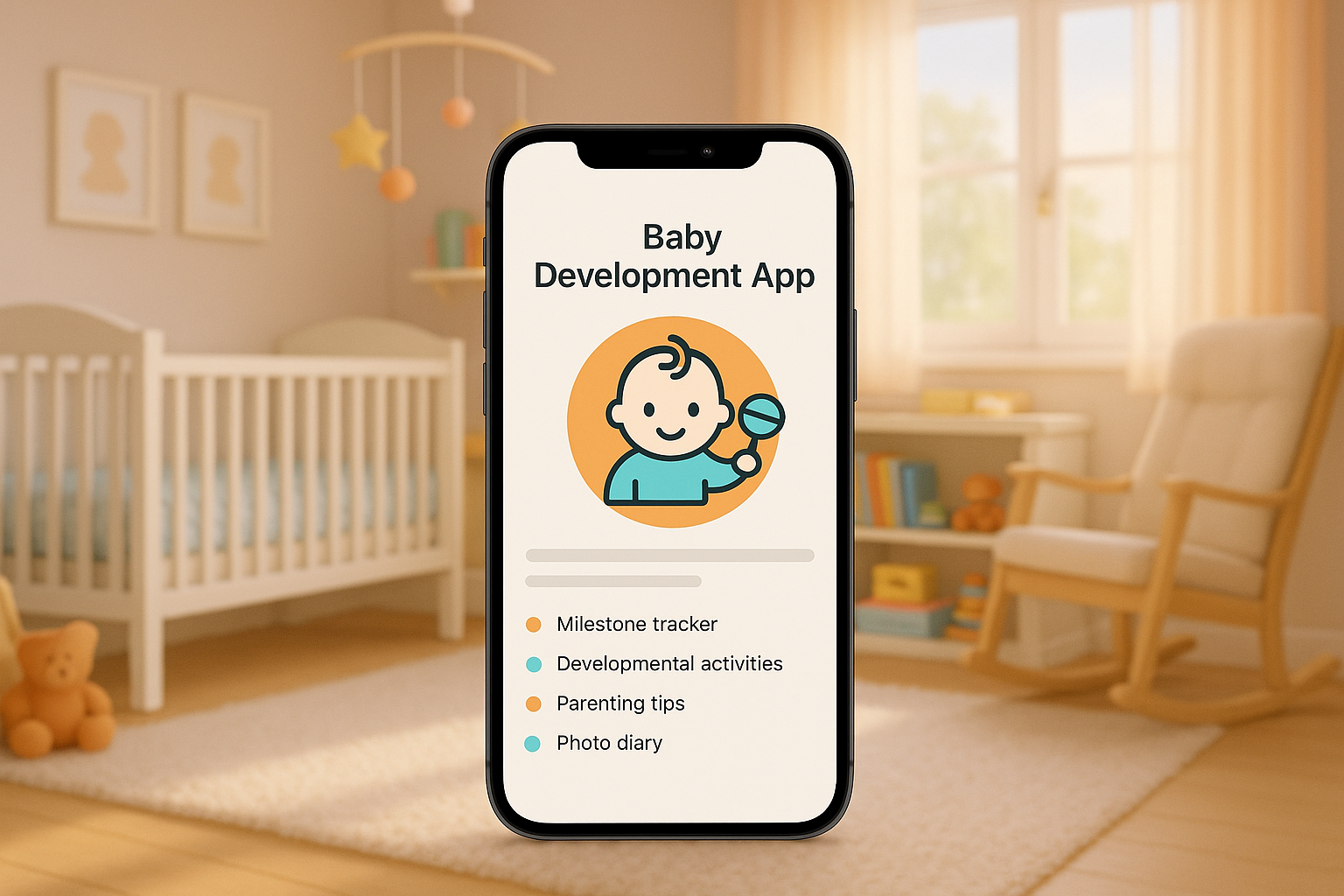Microsoft Azure offers a formidable platform for building next-generation applications. Its suite of services enables the creation of everything from sophisticated AI agents to infinitely scalable mobile backends. However, harnessing this power is a significant undertaking. Many organizations embark on their Azure journey with high hopes, only to encounter unforeseen complexities in architecture, cost management, and operational maintenance. The path from concept to a successful, scalable, and secure Azure application is fraught with potential pitfalls that can derail projects and inflate budgets.
This article serves as a comprehensive guide to Azure app development. We will delve into what constitutes an Azure application, explore the common difficulties of in-house development, and showcase the sheer variety of applications you can build on the platform. Furthermore, we will demystify the cost structure of Azure and introduce you to the leading development companies that can help bring your vision to life. As a top US AI-powered mobile app development firm, we at MetaCTO have over 20 years of experience and have launched more than 120 successful projects. We specialize in navigating the intricacies of Azure to build powerful, market-ready mobile applications, and this guide will share some of the critical insights we’ve gained along the way.
What is an Azure App?
An Azure app is not a monolithic product but rather a broad term for any application built, deployed, and run using the services and infrastructure of Microsoft Azure’s cloud computing platform. These applications are designed to leverage the inherent benefits of the cloud: scalability, high availability, global reach, and a rich ecosystem of managed services. Instead of being hosted on a single, on-premises server, an Azure app lives within a dynamic environment that can adapt to changing demands, from serving a handful of users to millions.
At its core, an Azure app can be a powerful cloud application for web and mobile, a set of highly-available and infinitely-scalable cloud APIs, or a complete full-stack web application. The platform supports various architectural patterns, allowing for the deployment of containerized applications, the development of modern apps using serverless containers, and the construction of complex systems based on microservices.
The defining characteristic of an Azure app is its integration with the Azure ecosystem. This allows developers to build scalable, high-performance applications from scratch or modernize existing ones, such as legacy SQL Server applications. By utilizing managed and intelligent SQL databases, developers can create applications that scale seamlessly. This means you can build everything from a simple web front end to always-on, scalable, distributed applications that are resilient and performant under any load. The essence of an Azure app is its ability to utilize a vast toolbox of cloud services to deliver functionality that would be immensely complex and expensive to build and maintain in-house.
Reasons It Is Difficult to Develop an Azure App In-House
While the potential of Azure is immense, the journey of in-house development is often challenging. Many organizations underestimate the paradigm shift required to effectively build and operate in the cloud, leading to common and costly mistakes.
Overwhelm and Foundational Neglect
One of the first hurdles customers face is being overwhelmed by the sheer number of possibilities within Azure. With hundreds of services, it is common to struggle with understanding how to even begin the journey. This initial excitement about building a new application can cause a critical error: teams often shift their entire focus toward the application or workload itself, neglecting the foundational elements that ensure long-term success. Core components like logging, monitoring, alerting, and security become afterthoughts. This neglect makes operating, maintaining, and troubleshooting the application significantly harder down the line. A strong foundation is not a luxury; it is a prerequisite for a stable and manageable cloud environment.
Operational and Documentation Deficiencies
There is a profound difference between merely deploying an application to the cloud and successfully running and operating it over time. In-house teams often lack the experience to establish well-documented, replicable patterns for consumers of the cloud environment. Without readily available documentation and clear, repeatable processes, each new deployment or update becomes a bespoke effort, increasing the risk of errors and inconsistencies. This lack of operational maturity means teams cannot respond to changes, including system failures, in a timely and effective fashion.
The “Bill-Shock” Phenomenon
Perhaps the most jarring challenge for companies new to Azure is the dreaded “bill-shock.” After running their environment for a month or two, they are often surprised by an unexpectedly high bill. This financial strain typically stems from a failure to adopt cloud-native cost management strategies. For example, teams often do not think about shutting down Virtual Machines during off-hours to avoid unnecessary spending. They may also fail to right-size their workloads, such as choosing the correct App Service Plans, database SKUs, or storage tiers, resulting in paying for over-provisioned resources. The ability to automatically scale out (or up) and in (or down) in relation to demand is another powerful cost-control feature that is frequently overlooked. Furthermore, many companies let valuable free MSDN credits for development environments go to waste, missing a key opportunity for savings.
The Automation and Mobile Integration Imperative
Automation still does not seem to be high on people’s lists when planning a cloud environment, yet its absence is a significant drag on productivity. Without automation, teams are perpetually busy with “unimportant,” repetitive tasks, pulling them away from value-added work. The cloud also necessitates a mental shift where infrastructure is treated as code—a concept previously associated only with software developers. This “infrastructure as code” approach is almost non-negotiable for modern cloud operations, and teams without this skillset will struggle.
These challenges are magnified when integrating Azure services with mobile applications. As one user, SBadger, discovered when trying to access Azure resources from a smartphone, mobile integration can introduce unique issues. SBadger encountered a “network problem” on an Android device using a cross-browser, even when health diagnostics showed no issues. This highlights that ensuring seamless access and performance across different mobile devices, browsers, and network conditions is a specialized skill. This is precisely where we at MetaCTO excel. As experts in custom mobile app development, we understand the critical layer connecting your powerful Azure backend to the user’s mobile device. We bridge the gap, ensuring that the integration is robust, secure, and provides a flawless user experience, no matter the platform.
Different Types of Azure Apps
The versatility of the Azure platform allows for the creation of an exceptionally wide range of applications, catering to nearly any business need or technological ambition. These can be broadly categorized by their primary function and the core Azure services they leverage.
AI and Machine Learning Applications
Azure is a powerhouse for artificial intelligence, enabling the development of highly sophisticated applications. This category includes:
- General AI and Machine Learning: Build and design custom AI applications and machine learning models from the ground up.
- Cognitive and Language Services: Develop applications with cognitive capabilities, including those that understand user commands, possess natural language skills, conduct machine translation, and apply advanced coding and language models.
- Generative AI: Create cutting-edge generative AI solutions, custom copilots, and AI-powered assistants for specialized fields like cybersecurity.
- Vision and Audio Analysis: Build apps that use customized computer vision models, automate image and text moderation, or extract meaningful insights from audio and video files.
- Multimodal Solutions: Develop complex multimodal, multilingual AI apps and intelligent AI agents that can automate business processes.
- Specialized AI: Create applications that empower users of all abilities to read and comprehend text or even develop virtual healthcare assistants.
Our expertise in AI Development allows us to harness these powerful Azure services to build transformative solutions that drive innovation and efficiency for our clients.
Web, Mobile, and Microservices Applications
This is the foundational category for many businesses moving to the cloud. Azure provides robust support for:
- Web and Mobile Backends: Create powerful, highly-available, and infinitely-scalable cloud applications and APIs for both web and mobile platforms.
- Modern Architectures: Develop full-stack web applications and build or modernize scalable, high-performance applications.
- Containers and Serverless: Deploy and scale containerized applications, run containerized web apps, and build modern apps and microservices using serverless containers.
- Distributed Systems: Deploy and operate always-on, scalable, and distributed applications.
- Database Integration: Build applications that scale with managed and intelligent SQL databases or modernize existing SQL Server applications.
Data, IoT, and Communication Applications
Azure excels at handling data at scale and connecting the physical and digital worlds.
- Data and Analytics: Provide users with customer-facing dashboards and analytics, and unify and manage sensitive health data (PHI) in the cloud.
- IoT and Spatial Intelligence: Develop digital agriculture solutions, create models of physical environments using IoT, build intelligent edge solutions, and incorporate location data and mapping visuals into business applications. You can even build applications that align and anchor 3D content to objects in the physical world.
- Real-Time Communication: Build real-time messaging web applications, create real-time collaborative experiences, and send push notifications to any platform from any backend.
Security and Infrastructure Applications
Security and robust infrastructure are paramount, and Azure provides the tools to build highly secure and resilient systems.
- Identity and Access: Build unique user-owned identity scenarios and offer personalized, secure access for customers and partners.
- Security and Compliance: Build applications to better protect sensitive information, verify platform trustworthiness and binary integrity, and build secure web front ends with powerful protection features.
- Networking and High-Performance Computing: Deploy mission-critical mobile network applications, run high-performance computing (HPC) workloads in the cloud, and deploy 5G and SD-WAN network functions on edge devices.
Cost Estimate for Developing an Azure App
Understanding the cost of an Azure application is crucial, but it’s not always straightforward. Pricing is flexible and depends heavily on the services used, the chosen pricing model, and usage patterns. It’s important to remember that prices are estimates; the actual cost can vary based on your agreement with Microsoft, the date of purchase, and currency exchange rates.
Core Pricing Models
Azure offers several ways to pay for its services, allowing you to optimize for your specific budget and commitment level.
- Pay-as-you-go: This is the most flexible model. You pay for App Service compute capacity by the second, with no long-term commitments or upfront payments. It’s ideal for applications with unpredictable traffic or for development and testing.
- Azure Savings Plan: For predictable workloads, you can commit to spending a fixed hourly amount on select compute services for a 1- or 3-year term. This unlocks lower prices on those services until your hourly commitment is reached.
- Reservations: This model provides a significant discount over pay-as-you-go prices. You purchase a one-year or three-year agreement to use a specific instance of a service, effectively reserving that capacity at a lower rate.
App Service Plan Tiers
The primary cost for many Azure apps comes from the App Service Plan, which defines the compute resources your application runs on. Except for the Free tier, an App Service plan carries a charge for these resources. Here is a breakdown of the common tiers.
Free and Shared Plans
These plans are metered per app and are suitable for development, testing, or very low-traffic applications.
| Plan | CPU | RAM | Storage | Pricing |
|---|---|---|---|---|
| F1 Free | 60 minutes/day | 1 GB | 1 GB | Free |
| D1 Shared | 240 minutes/day | 1 GB | 1 GB | Free per site |
Basic Service Plans
These dedicated compute tiers are designed for apps with lower traffic requirements that still need features like custom domains and SSL. Additional savings like plans and reserved instances are not available for this tier.
| Plan | Cores | RAM | Storage |
|---|---|---|---|
| B1 | 1 | 1.75 GB | 10 GB |
| B2 | 2 | 3.50 GB | 10 GB |
| B3 | 4 | 7 GB | 10 GB |
Premium v3 Service Plans
These plans are for production applications and offer a wide range of compute power. They are eligible for all pricing models (Pay as you go, Savings Plans, and Reserved Instances).
| Plan | vCPU | RAM | Storage |
|---|---|---|---|
| P0v3 | 1 | 4 GB | 250 GB |
| P1v3 | 2 | 8 GB | 250 GB |
| P1mv3 | 2 | 16 GB | 250 GB |
| P2v3 | 4 | 16 GB | 250 GB |
| P2mv3 | 4 | 32 GB | 250 GB |
| P3v3 | 8 | 32 GB | 250 GB |
| P3mv3 | 8 | 64 GB | 250 GB |
| P4mv3 | 16 | 128 GB | 250 GB |
| P5mv3 | 32 | 256 GB | 250 GB |
Isolated v2 Service Plans
These plans run in a private, dedicated App Service Environment, providing maximum security and isolation for mission-critical applications. They incur a flat “Stamp Fee” for the environment itself, plus a charge for each isolated worker instance.
| Plan | Cores | RAM | Storage |
|---|---|---|---|
| I1v2 | 2 | 8 GB | 1 TB |
| I2v2 | 4 | 16 GB | 1 TB |
| I3v2 | 8 | 32 GB | 1 TB |
| I4v2 | 16 | 64 GB | 1 TB |
| I5v2 | 32 | 128 GB | 1 TB |
| I6v2 | 64 | 256 GB | 1 TB |
Additional Costs and Billing Nuances
Beyond compute, several other services contribute to the total cost.
- SSL Certificates: While App Service Managed Certificates are free (one per custom domain, standard only), you may need to purchase more robust options. A Standard SSL Certificate costs $69.99/year, and a Wildcard SSL Certificate is $299.99/year. SNI-based SSL is free to use, but IP-based SSL costs $39/month per certificate.
- SQL Database: App Service offerings include a free 20MB SQL database for the first 12 months. After that period, it converts to a paid basic SQL subscription if you choose to continue using it.
- Billing for Stopped Apps: A critical point to remember is that you are charged for apps in a stopped state. The charge is for the reserved compute resources in your App Service Plan. To avoid these charges, you must delete the apps or downgrade their plan to the Free tier.
- Billing by Tier: In the Shared tier, each app is charged for its CPU quota. In dedicated tiers (Basic, Standard, Premium, Isolated), you are charged for each VM instance in the plan, regardless of how many apps are running on it.
Visual Studio subscribers can benefit from a Dev/Test offer, which provides savings of up to 55% on several App Service plans.
Top Azure App Development Companies
Choosing the right partner can be the difference between a successful Azure implementation and a costly failure. Here are some of the top companies specializing in Microsoft Azure, who can provide the expertise needed to navigate its complexities.
-
MetaCTO As a premier US AI-powered mobile app development firm, we bring over 20 years of experience to the table. Having launched over 120 successful projects and helped our clients raise over $40 million in funding, we possess a deep, practical understanding of what it takes to succeed. Our expertise lies not just in Azure but in the seamless integration of its powerful backend services into fluid, intuitive mobile applications. We understand the unique challenges of mobile integration—from network latency to cross-device compatibility—and architect solutions that are both robust and user-centric. We handle every step of the process, from validating your concept with a 90-day Rapid MVP to building, growing, monetizing, and evolving your application for long-term success. Our specialized focus on AI allows us to leverage Azure’s most advanced services to build truly intelligent and transformative products for our clients.
-
Managed Solution A nationally-recognized Microsoft Partner of the Year and a Top 1% Microsoft Cloud Solution Provider. They have a proven track record, having helped clients like WD-40 cut significant costs and increase productivity by migrating to Azure.
-
ZAG Technical Services This firm helped Index Fresh reduce its fully loaded IT costs by at least 30% after migrating the company’s infrastructure to Microsoft Azure.
-
KiZAN Technologies A Microsoft National Solutions Partner with over 30 years of experience. Their singular focus is on offering unrivaled expertise and innovation exclusively with Microsoft technologies, demonstrated by a successful application migration to Azure for The Amynta Group.
-
Agile IT A four-time Microsoft Cloud Partner of The Year, Agile IT has migrated millions of accounts to the cloud. They focus on Microsoft 365 and Azure, specializing in commercial, government, and GCC High deployments, security, and AI.
-
Coretek Services Known for helping Wolverine Worldwide use Citrix Virtual Apps and Desktops on Microsoft Azure and enabling Arhaus Furniture to optimize the customer experience with Azure.
-
Interlink Cloud Advisors Consistently ranked among the top 10, Interlink is a leading authority for deciphering the intricacies of Microsoft, including licensing and technical deployments. They assisted G&J Pepsi-Cola Bottlers with their Microsoft Azure strategy.
-
3Cloud Recognized as the #1 Microsoft Azure partner, 3Cloud combines deep expertise in Azure infrastructure, data and analytics, and application innovation. They helped a real estate brokerage gain speed, reliability, and scalability by migrating from on-premises to Azure.
-
JourneyTeam An innovative cloud services technology provider specializing in Microsoft business applications. They have helped clients like R.S. Hughes with Azure and cloud migration, and Wiley Wilson with Azure, cybersecurity, and identity management.
-
Lunavi A leader in digital transformation and managed IT services, Lunavi helps businesses modernize applications. They provide comprehensive services in cloud solutions and Agile development, having helped i-Function build a new software platform using Azure.
-
Quisitive A premier, global Microsoft Partner that harnesses the Microsoft cloud platform and AI to generate transformational impact for enterprise customers. They helped Chesterfield County develop a long-term forecasting solution using Azure and Power BI.
-
ClearDATA The nation’s fastest-growing healthcare cloud computing company, ClearDATA has specific expertise in the healthcare vertical, as shown by their work helping BehaVR use the Azure healthcare cloud.
Conclusion
Developing an application on Microsoft Azure offers a universe of possibilities, from creating intelligent AI agents that automate business processes to deploying infinitely scalable mobile apps that can serve a global audience. As we’ve explored, the platform’s power is matched by its complexity. In-house teams often face significant hurdles, including the initial overwhelm of service choices, the critical error of neglecting foundational architecture, the shock of unmanaged costs, and the steep learning curve of cloud-native operations and automation. We’ve detailed the vast array of application types you can build, provided a structured breakdown of the potential costs, and highlighted expert firms that can guide your journey.
The path to a successful Azure-powered application requires more than just technical skill; it demands strategic foresight, operational discipline, and deep platform expertise. As an expert mobile app development agency specializing in AI and Azure integration, we help you navigate these complexities. We transform your vision into a robust, scalable, and market-ready product, ensuring that the immense power of Azure is harnessed effectively to meet your business goals.
Don’t let the intricacies of cloud development hold back your big idea. Talk with an Azure expert at MetaCTO today to discuss how we can integrate the power of Azure into your product and build a successful mobile application, the right way, from day one.






